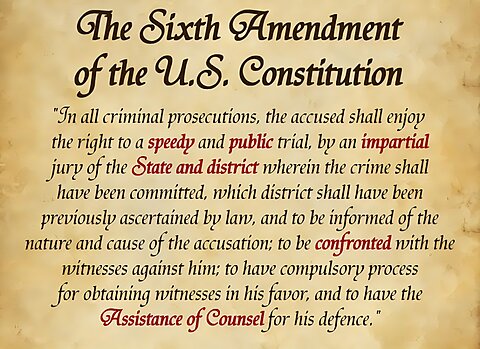The plight of Jay Carey, a 54-year-old North Carolina Army veteran, began not with a roar, but with a flicker—a flame held to an American flag in Lafayette Park. The act was a protest, a statement against what he saw as injustice, but it quickly became something else: a legal battle that would shine a light on one of the most contentious corners of the American justice system.
US Attorney Jeanine Pirro soon charged Carey with two Class B misdemeanors: lighting a fire in an undesignated area and damaging park property. These are petty misdemeanors—the lowest category of federal crime—each carrying a maximum sentence of no more than six months behind bars.
Notwithstanding serious First Amendment concerns and the reality that a president with a self-professed edict cannot issue an executive order overriding a Supreme Court ruling, to the uninitiated, Carey’s case seems like a straightforward, minor infraction. But to anyone familiar with the original understanding of our Constitution, this prosecution would shake the Framers to their core.
The Constitution’s text explicitly commands that the trial of “all” federal crimes be by jury, and it underscores that command by repeating in the Sixth Amendment that “in all criminal prosecutions” the defendant has the right to a public trial by an impartial jury in the district wherein the crime was committed. That was no accident.
The Framers—having felt the heavy hand of British oppression and the tyranny of courts devoid of juries—enshrined the right to trial by jury as a fundamental safeguard against an overreaching government. The Framers recognized that a jury trial was a cornerstone of fairness and self-governance, a vital check on the very power they were helping to create. Citizen jurors were intended to serve as guardians against government oppression.
But over time, the jury’s role has been neutered. Prosecutors and judges have curated the jury pool, ensuring that those most aware of the historic role of a jury as an injustice-preventing body are among the least likely to serve. The system has even shaped the perception of jurors themselves, deliberately misleading them to believe that their role has been relegated to that of a mere fact finder. Yet even that limited role is sometimes too high a burden for the government to meet. Accordingly, the Supreme Court confected a doctrine to subvert the jury process altogether. They called it the “petty offense exception.”
In the 1968 case of Duncan v. Louisiana, the Supreme Court incorporated the right to a criminal jury trial against the states. In doing so, the Court indicated that “[t]he penalty authorized for a particular crime is of major relevance in determining whether it is a serious one subject to the mandates of the Sixth Amendment.” Two years later, in Baldwin v. New York, the Court established a bright-line rule, holding that any crime with a maximum sentence of more than six months is a serious one, deserving of a jury. But nearly two decades later, in Blanton v. City of North Las Vegas, absent any historical foundation, the Court cemented the “petty offense exception,” firmly holding that if an offense carries a maximum sentence of six months or less, a jury is not required.
But what about someone—like Jay Carey—who is facing multiple petty offenses, where the combined maximum term of incarceration exceeds six months? This question was answered in the 1996 case of Lewis v. United States, in which the Court held that even if a defendant is facing multiple petty charges, each with a maximum six-month sentence, the person is still not entitled to a jury trial. The justices ruled that the right to a jury trial is tied to the severity of each individual offense, not the total potential sentence.
As originally understood, the Constitution doesn’t carve out arbitrary exceptions. The Framers were deeply skeptical of state power and understood that when you create exceptions, they’ll eventually be used against you.
Just this term, the Court was asked to revisit the wholly unoriginalist “petty offense excpetion.” Unfortunately, the justices refused to reconsider.
The case of Jay Carey is a powerful and unsettling reminder that a fundamental constitutional right, one designed to protect us from government overreach, can be quietly and methodically eroded. The veteran’s fate is now left to a judge, who—unlike a jury of his peers—may be far removed from his situation and is statistically likely to be a former courtroom advocate for the government.















